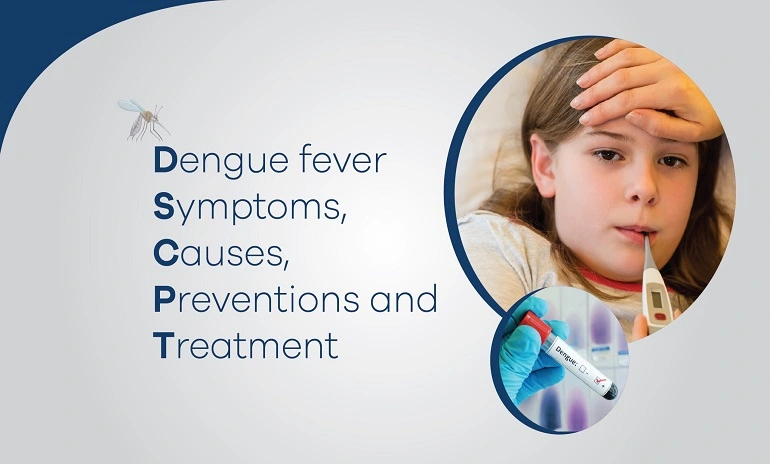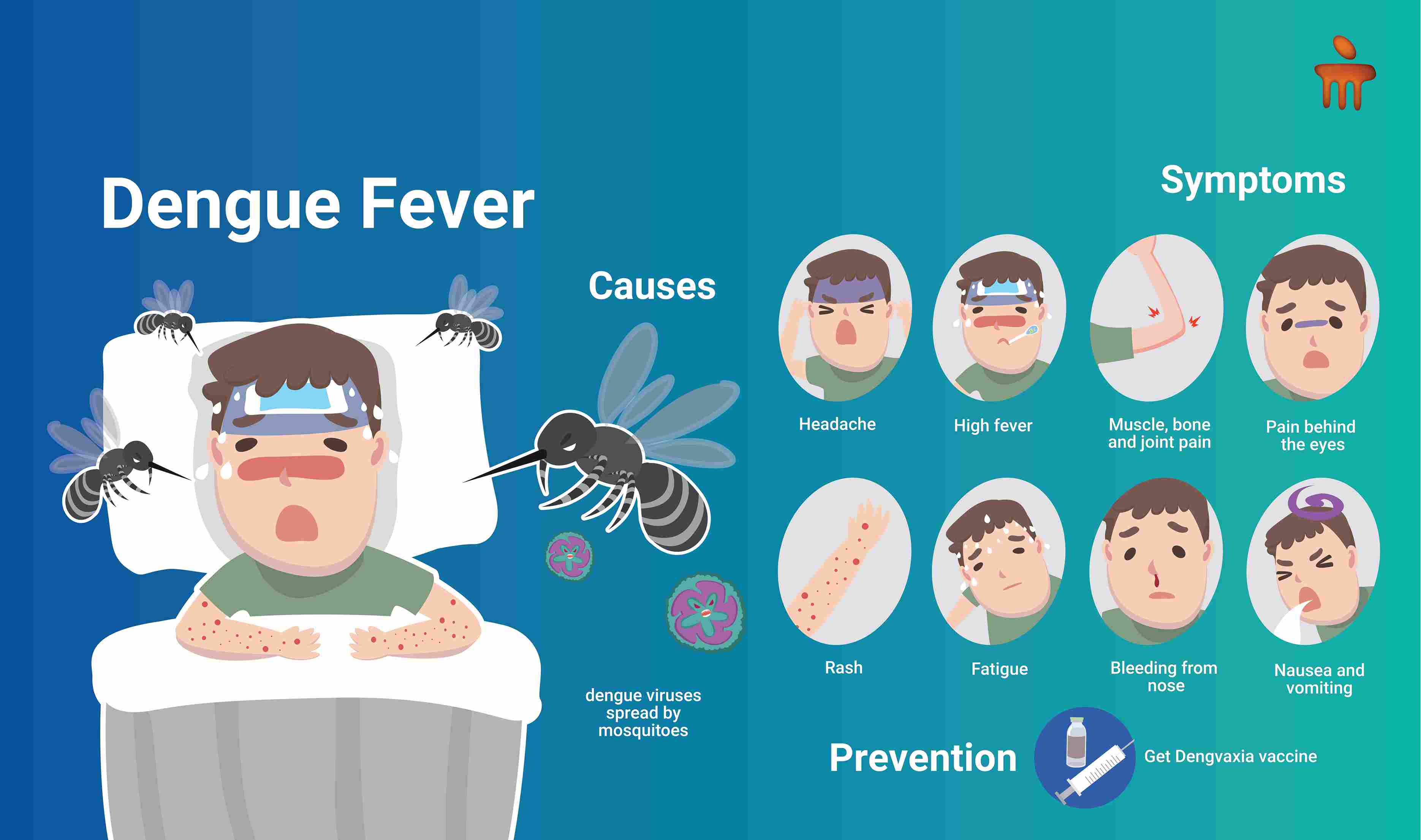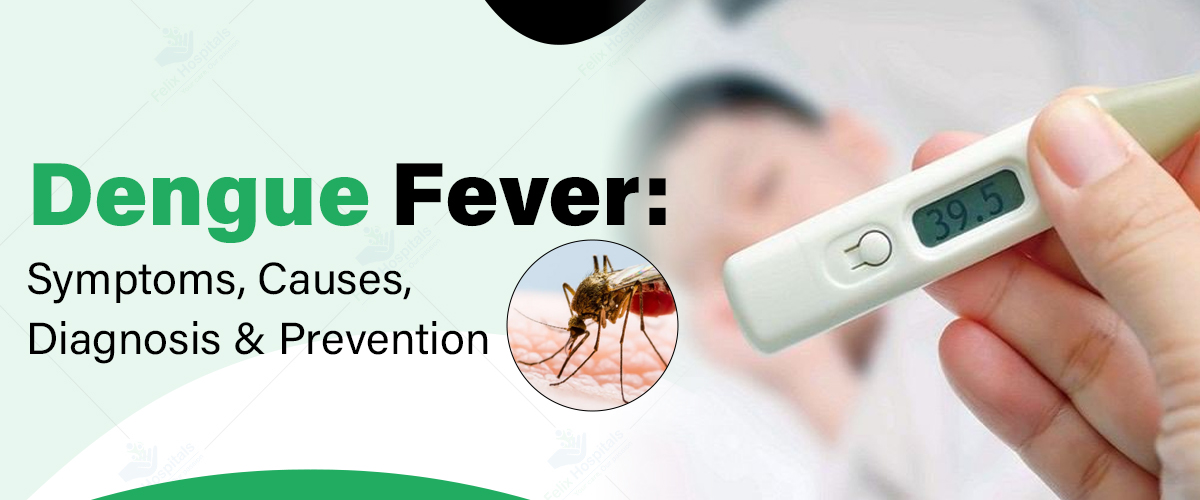Dengue fever-various aspects-


Here’s a more detailed explanation:
Overview
Dengue (DENG-gey) fever is an illness transmitted by mosquitoes that is found in tropical and subtropical regions around the globe. Mild dengue fever results in a high fever and symptoms resembling those of the flu. The more severe version of dengue fever, known as dengue hemorrhagic fever, can result in significant bleeding, a rapid decline in blood pressure (shock), and even death.
Each year, millions of dengue infection cases are reported worldwide. Dengue fever is primarily prevalent in Southeast Asia, the western Pacific islands, Latin America, and Africa. However, the disease has been expanding into new regions, leading to localized outbreaks in Europe and the southern United States.
Scientists are developing vaccines for dengue fever. Currently, in regions where dengue fever is prevalent, the most effective methods to prevent infection include avoiding mosquito bites and implementing measures to decrease the mosquito population.
Symptoms
Many individuals do not show any signs or symptoms of a dengue infection.


If symptoms do manifest, they can often be confused with other diseases — like the flu — and generally start four to ten days following the bite from an infected mosquito.
Dengue fever leads to a significant fever — 104 F (40 C) — and may present with any of the following signs and symptoms:
Headache
Muscle, bone or joint pain
Nausea
Vomiting
Pain behind the eyes
Swollen glands
Rash
Most individuals recover in about a week. In certain instances, symptoms can escalate and become life-threatening. This is referred to as severe dengue, dengue hemorrhagic fever or dengue shock syndrome.
Severe dengue occurs when your blood vessels become compromised and leak. Additionally, the quantity of clot-forming cells (platelets) in your bloodstream decreases. This situation may result in shock, internal bleeding, organ failure, and potentially death.
Warning signs of severe dengue fever — a life-threatening situation — can appear rapidly. The warning signs typically arise the first day or two after your fever resolves, and may consist of:
Severe stomach pain
Persistent vomiting
Bleeding from your gums or nose
Blood in your urine, stools or vomit
Bleeding under the skin, which may resemble bruising
Difficult or rapid breathing
Fatigue
Irritability or restlessness
When to see a doctor
Severe dengue fever is a medical emergency that poses a life-threatening risk. Seek urgent medical help if you have recently traveled to an area where dengue fever is prevalent, have experienced a fever, and begin to display any of the warning signs. Warning signs can include severe stomach pain, vomiting, difficulty breathing, or blood in your nose, gums, vomit or stools.
If you have traveled recently and experience a fever along with mild symptoms of dengue fever, contact your doctor.
Causes
Dengue fever is triggered by one of four distinct types of dengue viruses. You cannot contract dengue fever through close contact with an infected individual. Rather, dengue fever is transmitted via mosquito bites.
The two species of mosquitoes that predominantly transmit the dengue viruses are commonly found in and around human habitats. When a mosquito bites a person who is infected with a dengue virus, the virus transfers into the mosquito. Subsequently, when this infected mosquito bites another individual, the virus is introduced into that person’s bloodstream, resulting in an infection.
Once you have recuperated from dengue fever, you gain long-lasting immunity to the specific virus that infected you, but not to the other three types of dengue viruses. Consequently, it is possible to become infected again in the future by one of the other three virus types. Your chances of experiencing severe dengue fever increase if you contract dengue fever for a second, third, or fourth time.
Risk factors
Your likelihood of developing dengue fever or a more serious form of the illness increases if:
You reside or travel in tropical regions. Being in tropical and subtropical locations raises your risk of encountering the virus that leads to dengue fever. Areas with particularly high risks include Southeast Asia, the western Pacific islands, Latin America, and Africa.
You have previously had dengue fever. A past infection with a dengue fever virus heightens your risk of experiencing severe symptoms if you contract dengue fever again.
Complications
Severe dengue fever has the potential to lead to internal bleeding and organ damage. Blood pressure may plummet to dangerous levels, resulting in shock. In some instances, severe dengue fever can prove fatal.
Women who contract dengue fever while pregnant might transmit the virus to the baby during delivery. Furthermore, babies born to women who experience dengue fever during pregnancy face a heightened risk of pre-term birth, low birth weight, or fetal distress.


Prevention
Vaccine
Dengue fever vaccines could be accessible for individuals between the ages of 6 to 60. The dengue vaccination consists of a series of two or three doses, depending on the vaccine administered, spread over a few months. These vaccines are intended for people living in regions where the dengue viruses are prevalent and who have previously contracted dengue fever at least once.
The vaccines are not offered in the continental United States. However, in 2019, the U. S. Food and Drug Administration approved a dengue vaccine known as Dengvaxia for individuals aged 9 to 16 who have had dengue fever before and reside in U. S. territories and freely associated states where dengue fever is prevalent.
Prevent mosquito bites
The World Health Organization emphasizes that the vaccine alone is not a sufficient measure to mitigate dengue fever in areas where the disease is common. Preventing mosquito bites and managing the mosquito population remain the primary strategies for curtailing the spread of dengue fever.
If you find yourself living in or traveling to a region where dengue fever is widespread, these suggestions may assist in reducing your likelihood of mosquito bites:
Stay in homes that are air-conditioned or well-screened. The mosquitoes responsible for transmitting dengue viruses are predominantly active from early morning until evening, but they can also bite during nighttime.
Wear protective attire. When venturing into areas populated by mosquitoes, don a long-sleeved shirt, long pants, socks, and shoes.
Utilize mosquito repellent. You can apply permethrin to your apparel, footwear, camping equipment, and bed nets. Additionally, you can purchase clothing that is already infused with permethrin. For skin application, use a repellent that contains a minimum of 10% DEET.
Minimize mosquito habitats. Mosquitoes that transmit the dengue virus usually inhabit spaces around homes, reproducing in stagnant water found in items like discarded tires. You can assist in reducing mosquito numbers by removing breeding sites where they deposit their eggs. At least once weekly, empty and cleanse containers that hold standing water, such as plant pots, pet dishes, and floral vases. Ensure that containers with standing water are covered between cleanings.




